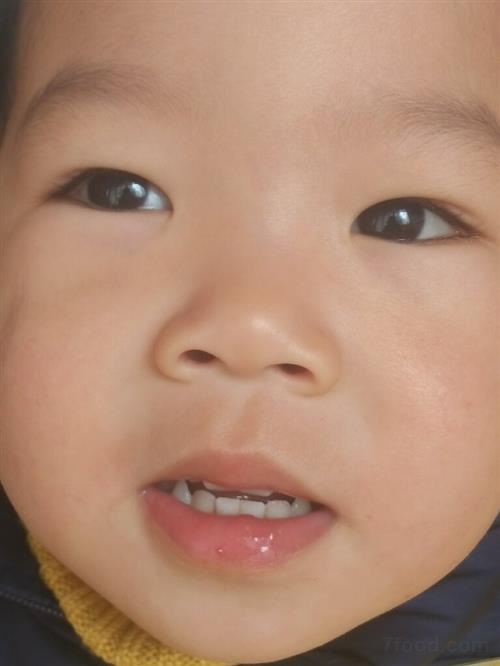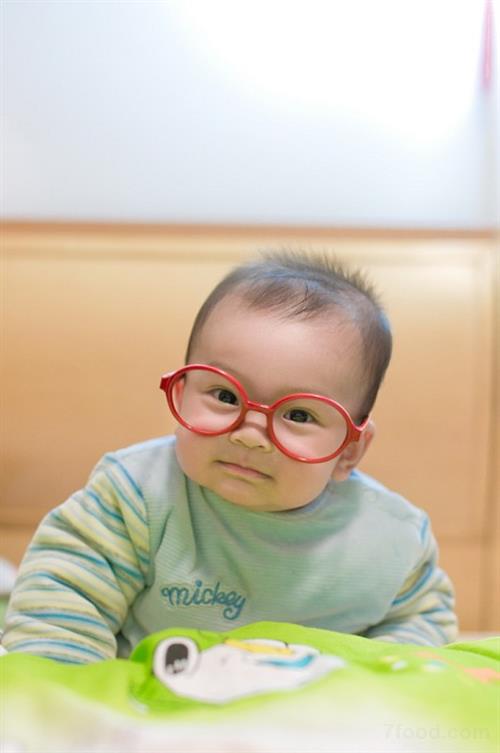Many novice parents found that their baby had just drooling, and the wet mouth dripped along the corners of the mouth, and some of them flowed down like small streams. Then the baby drooling was normal. Is it?

The baby's mouth is shallow and does not regulate excessive fluid in the mouth, and drooling can occur. As the age grows, the tooth erupts and the depth of the mouth increases. Infants and young children gradually learn to use swallowing to regulate excessive fluids. This drooling phenomenon gradually disappears, which is physiological.
The baby begins to grow teeth about 6 months or so, and the small deciduous teeth cause the gums to become uncomfortable. This discomfort will stimulate the nervous system of the child's mouth. When the nervous system is stimulated, it will secrete a large amount of saliva, and the baby will swallow at this time. The function is not well developed, plus the baby's oral solvent is also very small, so she can not control the amount of saliva can not swallow too much saliva in time, leading to the phenomenon of saliva has been outflow, this period has been accompanied by the child's entire teeth process .
Novice parents know what, in fact, baby saliva is still good!

1, lubrication
When the baby just grows his teeth, the gum tissue is inevitably swollen and painful, and the cusps are relatively delicate. At this time, the saliva flowed out of the baby can play a role in lubrication and prevent the appearance of inflammation around the teeth.
2, cleaning effect
The saliva that comes out of the baby can keep the mouth moist and clean, and it can also clean the baby's newly emerged small teeth and prevent the formation of tooth decay.
3, promote the role
Saliva can promote the development of baby's taste buds, thereby improving the baby's appetite; also can promote the activities of the lips and tongue, so that the baby will speak as soon as possible; but also can promote the maturity and perfection of swallowing movements.
However, although baby saliva is good, it must be handled in a timely manner.

1. When the baby's saliva fluctuates, the mother pays attention to the skin around the baby's mouth and cleans it twice a day with clean water. Keep your baby's face and neck dry and avoid eczema.
2. Saliva contains some bacteria in the mouth and amylase and other substances, has a certain stimulating effect on the skin, if not careful care, the skin around the mouth will turn red, from the small red papules, then need to be painted with some babies Skin cream.
3. Do not use a rougher handkerchief or towel to wipe the baby's mouth to wipe it, it is easy to damage the skin. Use a very soft handkerchief or napkin to dash the saliva out of your mouth and keep it dry.
4. In order to prevent saliva from getting wet on the front and back of the chest, a small cotton bib can be attached to the baby. The soft, slightly thick, absorbent fabric is the preferred choice for the bib.
5. Baby in the eruption period of deciduous gums, pain, increased saliva, can give the baby a soft and hard mouth bite gel, more than 6 months baby teething biscuits, can reduce the gums when teething discomfort, It also stimulates the eruption of deciduous teeth and reduces drooling.
6. If the skin has rash or erosion, it is best to go to the hospital for treatment. During skin irritation, skin should be kept clean, refreshed and treated with symptoms. If you need to apply antibiotics or antipruritic ointments locally, it is best to take the time before your baby goes to bed or when you are sleeping, so as not to inadvertently eat in the mouth and affect your health.
Saliva abnormalities Parents should also pay attention, because the baby drooling may also be pathological reasons.
The so-called pathological, is definitely a morbid phenomenon, first of all, the baby's parotid gland is damaged, it is easy to cause drooling, parotid gland damage is mainly due to adults always love to pinch the child's face, in the baby's parotid gland is not mature, long-term tweaking The child's face can hinder the child's parotid gland development and even damage the parotid gland. The main reflection is that children's drooling amount far exceeds the amount or frequency of drooling of children during the same period. Parents should pay attention to the fact that children who like children can kiss their baby face, but the children are fragile and cannot knead their faces.
Oral diseases: Oral diseases such as stomatitis, mucosal hyperemia or ulceration, oral ulcers, glossitis, etc. stimulate the salivary glands to excrete vigorously, leading to drooling, because most of them are oral inflammation, so in addition to drooling also accompanied by fever, anorexia, crying and other symptoms.
Neurological diseases: For example, the nerve center that controls salivary drooling, the nerves in the brain, the body that is not dominated by the brain, autonomic dysfunction, facial nerves, tongue nerves, and impediments to movement of the jaw are all salivating.
Some congenital diseases: Some children with congenital diseases have low IQ, slow response, abnormal physical development, and symptoms of drowsiness from birth. Such as congenital brain inflammation, mental retardation, cerebral palsy and so on.
If you find that the baby has more than one of the above situations, you should seek medical advice promptly and consult a doctor for help.
Help Sleeping Plant Extract,Taraxacum Platycarpum Extract,Polygala Tenuifolia Extract,Gynostemma Pentaphyllum Extract
Fufeng Sinuote Biotechnology Co.,Ltd. , https://www.sinuotebio.com